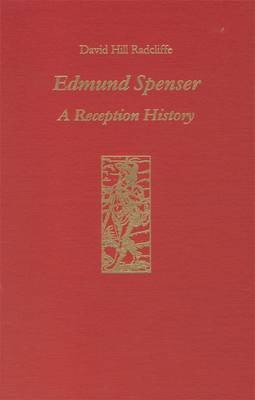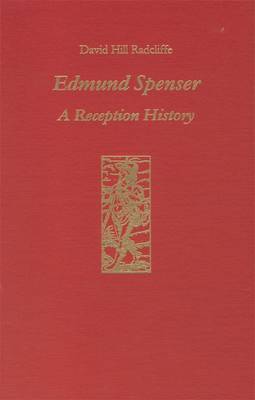
Door een staking bij bpost kan je online bestelling op dit moment iets langer onderweg zijn dan voorzien. Dringend iets nodig? Onze winkels ontvangen jou met open armen!
- Afhalen na 1 uur in een winkel met voorraad
- Gratis thuislevering in België vanaf € 30
- Ruim aanbod met 7 miljoen producten
Door een staking bij bpost kan je online bestelling op dit moment iets langer onderweg zijn dan voorzien. Dringend iets nodig? Onze winkels ontvangen jou met open armen!
- Afhalen na 1 uur in een winkel met voorraad
- Gratis thuislevering in België vanaf € 30
- Ruim aanbod met 7 miljoen producten
Zoeken
Omschrijving
Survey of Spenser's critical reception, showing how it is conditioned by period and cultural context. Spenser was vital to attempts to define what English literature should be: in Tudor England, a Protestant literature; in Stuart England, a modern literature; in Hanoverian England, a romantic and British literature. In Victorian Britain, lecturers and essayists used Spenser to exemplify the proper aims of a popular and moral literature, while in the twentieth century philologists and academic critics have used The Faerie Queene to illustrate the workings of 'culture'.
David Radcliffe argues that Spenser's writings entered actively into the process of redefining what literature is and does. In epigrams and verse epistles, prose redactions and scholarly essays, the Poet's Poet became the Critic's Poet, as various readers adopted his typology, characterisation, allegory, description, narrative devices, and modes of interpretation.
David Radcliffe argues that Spenser's writings entered actively into the process of redefining what literature is and does. In epigrams and verse epistles, prose redactions and scholarly essays, the Poet's Poet became the Critic's Poet, as various readers adopted his typology, characterisation, allegory, description, narrative devices, and modes of interpretation.
Specificaties
Betrokkenen
- Auteur(s):
- Uitgeverij:
Inhoud
- Aantal bladzijden:
- 254
- Taal:
- Engels
- Reeks:
- Reeksnummer:
- nr. 38
Eigenschappen
- Productcode (EAN):
- 9781571130730
- Verschijningsdatum:
- 1/08/1996
- Uitvoering:
- Hardcover
- Formaat:
- Genaaid
- Afmetingen:
- 386 mm x 579 mm

Alleen bij Standaard Boekhandel
+ 209 punten op je klantenkaart van Standaard Boekhandel
Beoordelingen
We publiceren alleen reviews die voldoen aan de voorwaarden voor reviews. Bekijk onze voorwaarden voor reviews.











